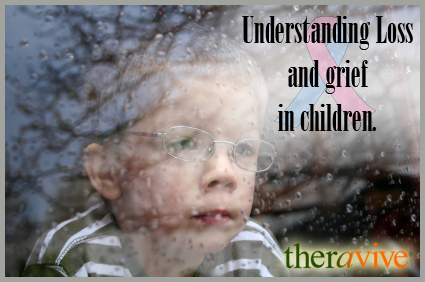 Grief is inevitable for those of us who choose to love. As difficult as the death of a loved one may be, our ability to cope with emotional distress can lessen the burden. As parents, one of your jobs is to help kids learn to cope, and how to think.
Grief is inevitable for those of us who choose to love. As difficult as the death of a loved one may be, our ability to cope with emotional distress can lessen the burden. As parents, one of your jobs is to help kids learn to cope, and how to think.
Setting the Stage for Healthy Coping
So much of our ability to cope with difficult emotions is rooted in our beliefs. I grew up thinking ‘I simply could not stand it if something happened to my younger brother’. For years, I prayed that I would die before him. That is quite a heavy load for a two-year-old to bear.
I internalized this faulty belief at around age two. My brother was born 6-weeks premature, which was a big deal in 1960. In my best two-year-old mind, I took in the message about how fragile this little guy was, and combined it with the fear and concern of the adults in my life. The result was some unhealthy beliefs that took years of therapy to unravel. It doesn’t have to be like this.
Living involves loss, and while that may seem crass, it is nonetheless a reality. In many ways, the sooner a child learns this valuable life lesson, the better s/he can cope with loss when it happens. In the best of all worlds, adults will be rational thinkers (that is the opposite of ‘If so-and-so happens, I simply can’t bear it!’) and teach children to think healthy thoughts that lead to rational beliefs. One of the realities these emotionally healthy children will learn is that difficult situations (and emotions) will happen, and that they can cope when it happens. The keys to resilience.
Ambiguous and Perceived Loss, Secondary Loss and Anticipatory Grief
Loss happens on many levels. We experience loss permanently through death, and also by being separated from our loved ones, ie. military families, divorce, etc.. The latter is an ambiguous loss. These are often difficult to address as the loss is not clear-cut.
In my work with kids in foster care who were separated from their parents, and often siblings, the feelings and behaviors they experienced were complicated, and often followed the stages of grief. Losing a job or becoming disabled and no longer able to earn money is an ambiguous loss. People who experience either of these have to successfully grieve these losses.
Secondary losses are those losses that occur as a result or in addition to the primary loss. The primary loss may be the death of a grandparent. The secondary losses include loss of affection, missing the time spent together and the little things she did for you, etc..
It is important to acknowledge these secondary losses, as they are often very important. A secondary loss for one who has become disabled and can no longer work is the loss of status – and often loss of self worth. People living with chronic illness experience many secondary losses and ambiguous losses.
Anticipatory grief occurs when we are expecting a death or loss. Prolonged illness or the aftermath of an accident or injury are times when people often report feeling all the stages of grief before the actual death has happened. There is often a mixture of guilt and fear when people experience anticipatory grief.
 Stages of Grief
Stages of Grief
We have talked about the behavioral manifestations of grief and trauma in children and how cognitive and psychological development at different ages affects the reactions of children who experience trauma or loss. It is also helpful to be aware of the stages of grief that are considered basically universal across the lifespan. Recognition of where you are in the grief process as a parent who has experienced loss can be very helpful in managing your reactions with your child(ren).
· Denial – this is generally the initial reaction to the news of a loss. The reality of the loss has not been totally accepted. Denial seems to move past our conscious awareness into our senses within a few minutes or hours, depending on the situation.
· Bargaining – at this stage we are generally making deals with or promises to God. Often when someone gets news of an accident or injury, they will hold out hope that it is the wrong person; this is a mixture of denial and bargaining.
· Anger – people move between anger and sadness for months. They may feel angry one minute (or day) and sad the next. This can go on for months, but should lessen with time.
· Sadness – sadness as a part of grief is different from depression. If sadness does not lessen after two weeks, meaning there are periods of time when the person who is grieving feels normal, it can become clinical depression. Sadness from grief should be transient after the first few weeks, but depression is constant and there is no reprieve. If your child (or you) are experiencing disrupted sleeping and eating patterns and/or do not feel any relief at least part of the time after two weeks, see your medical provider. If your child (or you) has thoughts of not wanting to live, seek emergency medical help immediately.
· Acceptance – at some point life will seem normal again, most of the time. We find ways to remember the good memories and make sense of our new reality. This can take years for some; give yourself time. Anniversaries, holidays, etc. may always be hard – be gentle with yourself and your child(ren) around these times.
Four Tasks of Mourning -
- Accepting the Reality of the Loss – help your child accept the news of the loss.
- Experiencing the Pain of Grief – help your child express his/her pain appropriately.
- Adjusting to An Environment in Which the Deceased Is Missing – help your child adapt to his/her new life.
- Find an Enduring Connection with the Deceased and Move on With Life – help your child identify ways to remember and celebrate the lost loved one.
Adapted from: Grief Counseling and Grief Therapy
________________________________________________________________________________________________________
"On Death and Dying." Elizabeth Kubler-Ross Foundation. N.p.. Web. 5 Sep 2013. <http://www.ekrfoundation.org/five-stages-of-grief/>
Worden, J.W., Grief Counseling and Grief Therapy, Fourth Edition, Spring Publishing Co., NY, 2008.
About the Author
 LuAnn Pierce, LCSW
LuAnn Pierce, LCSWI am a clinical social worker, therapist and writer. Currently, I offer online therapy and coaching services to people in Colorado and Wyoming. As a provider for the CO Department of Vocational Rehabilitation and the National MS Society, my expertise in counseling people who have disabilities and chronic illness is considerable. I have written for About.com, DailyRx.com, Theravive.com, GoodTherapy.org, SelfHelpMagazine.com and contribute to several other online health and mental health sites.
Office Location:
19th & Dahlia
Denver, Colorado
80220
United States
Phone: 303-910-2425
Contact LuAnn Pierce, LCSW
Professional Website:
http://HireASocialWorker.com